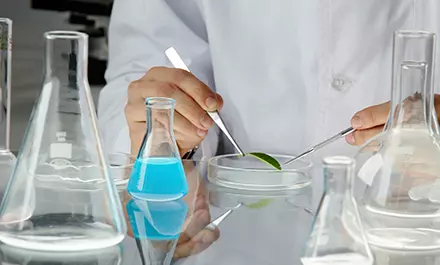
Does homemade ejuice gunkup your coils faster
E-cigarettes have become increasingly popular in recent years, with many individuals looking for alternatives to traditional tobacco products. As a result, vaping has become a common practice amongst smokers and non-smokers alike. However, one concern that vapers have is whether homemade e-juice gunk up their coils faster.
The answer is not straightforward and requires an understanding of the composition of e-juice and the types of coils used in vaping devices. E-juice or e-liquid is a substance that contains a mixture of propylene glycol (PG), vegetable glycerin (VG), flavorings, and nicotine. The amount of PG and VG in e-juice varies and affects the viscosity, cloud production, and throat hit of the vapor produced.
Coils are the heating element of vaping devices, responsible for converting e-liquid into vapor. The most common types of coils are made of metal wires wrapped around a wick or cotton material and are responsible for heating the e-juice to high temperatures, causing vaporization.
Now, to answer the question of whether homemade e-juice gunk up coils faster, let's examine the factors that contribute to coil gunking. Coil gunking is a build-up of residue on the surface of coils, making them less effective in producing vapor and leading to a burnt taste and smell.

One of the main causes of coil gunking is the sweeteners in e-juice. Sweeteners like sucralose, fructose, and stevia are used in many commercial e-juice brands to enhance the flavor and taste of the vapor produced. However, these sweeteners break down into hard carbon deposits when heated at high temperatures, leading to coil gunking.
Homemade e-juice has the potential to gunk up coils faster than commercial brands if they contain high levels of sweeteners. As vapers create their e-juice using various flavorings and ratios of PG and VG, it is recommended to avoid adding sweeteners, particularly if the recipe already has a high concentration of natural sugars.
Natural sugars like fructose and glucose in fruits and other flavorings can also contribute to coil gunking. These natural sugars break down in the same way as sweeteners, forming carbon deposits that stick to coil surfaces and lead to gunking.
Another factor that contributes to coil gunking is the type of coils used. The most common types of coils are Kanthal, stainless steel, and nickel coils. Kanthal coils are durable and can withstand high temperatures, making them popular among vapers. Stainless steel coils are also durable and offer better temperature control than Kanthal coils. Nickel coils offer excellent temperature control but have a shorter lifespan due to their softness.
Kanthal coils are resistant to most e-juice flavors and only gunk up when exposed to high levels of sweeteners. Stainless steel coils are also resistant to most e-juice flavors but gunk up faster than Kanthal when exposed to sweeteners and natural sugars. Nickel coils are the most susceptible to coil gunking and require regular cleaning and maintenance.
In conclusion, whether homemade e-juice gunk up coils faster depends on the ingredients used and the type of coil used. Homemade e-juice with high levels of sweeteners and natural sugars are more likely to gunk up coils faster than commercial brands. Kanthal and stainless steel coils are less susceptible to gunking than nickel coils.
To minimize coil gunking, vapers should avoid adding sweeteners and natural sugars to homemade e-juice and regularly clean and maintain their coils. Vapers should also experiment with different coil types and e-juice ratios to find the best combination that minimizes coil gunking.
In summary, homemade e-juice can gunk up coils faster than commercial brands if they contain high levels of sweeteners and natural sugars. Vapers should be mindful of the ingredients used in their homemade e-juice and the type of coils used in their vaping devices to minimize coil gunking.

We will contact you as soon as possible









